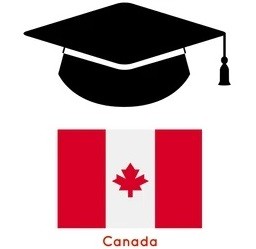Things to Consider Before Choosing a Study Abroad Destination

Studying abroad is no longer an unattainable dream as there are more and more opportunities opening up across the globe. As there are many choices available, most students are confused about how to choose a destination for pursuing their higher education. Globor gives you an insight on the things to consider before starting your application to the universities abroad.
-
Location
Where you want to study is the first question that pops into your mind when you decide that you want to pursue your overseas education abroad. With many options to choose from, this is the first thing to consider to further narrow your choices. Answering this question will be easier if you further expand your horizons by asking yourself a few questions like:
- How far do you want your destination to be from your home country?
- Which course do you want to pursue?
- Which is your dream university?
- Is there preference to the climate you want in your study abroad destination?
These questions can, to some extent, help you filter out the options effectively. There are many reputed educational institutions all over the world, and most countries will have your dream course. It will be fitting if you have a good idea on your expectations as in climate and culture, which will enable you to find the right destination for your future.
-
Cost
The expenses that you are willing to shed for your abroad education is a key factor that will have an impact on your decisions. Most banks are willing to give educational loans, and they have become more extensive when it comes to the number of countries that the students can apply for.
Depending on the country and course of choice, one can get a ballpark idea of the expenses incurred. Education in countries like, say, the USA is very expensive, and pursuing courses will only be possible if you have a good scholarship. There are other countries and universities that give good opportunities and grants to students who are academically qualified. The living expenses pertaining to each country are subjective and subject to change, so also inquire about part-time jobs that will help meet the day-to-day expenses of the students. Today, many foreign education consultants guide and support students to get hold of the best universities and the best possible offer in terms of studying and managing the expenses as well.
-
Academic Rankings
There are many official ranking reports that often categorise universities under different criteria and rank them on the basis of the same. These academic rankings are extremely helpful for students in deciding which universities to apply to.
Different domains rank different courses, such as MBA universities and colleges, which are typically ranked by the Financial Times, Economic Times, and so on. The Times Higher Education World University Rankings also publishes general rankings that rank universities based on:
- Citations
- Teaching
- Research
- Industry Income
- International Outlook.
Look down on the options that you are looking for, and then filter down the universities that you are planning to apply to.
-
Employment opportunities in the study location
Most students who apply to universities abroad are also thinking about building a future in the country they choose. So, when settling in for the future comes into question, the opportunities to work and stay back also come into view. Make sure to understand from alumni groups or from respective university academic counsellors about the placement and stayback opportunities in their country.
The placement opportunities are not as vibrant as in India, and most universities will only provide you with the necessary assistance to guide you through. Staying back is very important, as it will give you enough time to broaden your resume through internships and eventually help you find a job.
Also, try to understand the major employment opportunities and fields in the country you are interested in. It will give a fair idea of the amount of opportunities that your particular course and industry can offer, and it will also be good to check on the payscale and whether it will suffice to bring your family down as well.
-
Language
Even though most universities have English-speaking academic staff, in some countries, it becomes necessary to learn their language. Learning a foreign language can be difficult, but it will definitely have its own perks in terms of getting you more job opportunities and better acceptance into their culture. It will also help you communicate with the locals much more effectively. If you are not very keen on learning a new language, you should make sure that you apply to universities in English-speaking countries. Most countries will also require you to submit a language test score, and these scores have different cut-offs.
-
Visa Regulations
Visa regulations are not the same in every country. Some countries have very strict terms and conditions when it comes to granting visas, and some other countries are quite lenient when it comes to processing. The visa regulations can also differ within the country. Take note of these and also make sure you check the time that is required for visa processing.
-
Opportunities for dependents
If you are married, you will undoubtedly prefer to bring your spouse and children with you. Most countries accept it because they issue student visas and dependent visas for spouses together. It will be ideal to check whether the spouse will be able to work in the country and whether they will have an open work visa. The validity of the spouse visa will be similar to that of the student visa. Make sure you understand the terms and conditions related to the visa before applying for admission.
These are just a few of the things to consider, but they are the most important ones when considering studying abroad. With the help of a good educational consultant like Globor, the entire process can be seamless and hassle-free.
Related Blog

Why study Hospitality Management in the UK?
 (1)664aed680a8e9.png)
10 Easy Steps to Get a Study Abroad Scholarship
 (1)66437fcf8db2c.png)
Self-Application or Study Abroad Consultant: Which is Better?
6643606f06693.png)
What are the potential challenges of studying abroad, and how to overcome them?
6628d683c5c4c.png)
Budgeting Tips for Studying in Australia

How do I apply for a Master's at Canadian universities?

How to Prepare for a Canada Student Visa Interview?

How to Improve Your Communication Skills For Abroad Studies

A Comprehensive Guide To Applying For A PG Work Permit In Canada
65a670c6772ef.jpg)
UK Student Visa: New Rules from 2024 Applications

Top Colleges In Canada For MBA Without GMAT

Part-Time Jobs in Canada

Preparing Invitation Letter For Canada Visa: All You Need To Know

Cost Of Studying For Indian Students In The UK

Visa requirements for Indian students to study abroad in the UK

GRE Accepting Universities In The USA

Public Vs Private Universities - Which Is Better?

How To Apply Student Visa For The USA?
6505864a3be98.jpg)
Best Interior Design Programs In The UK
64fee13f97d75.jpg)
Difference Between SDS and Non-SDS Visa Applications
64f5f29debd74.jpeg)
Reasons Why You Should Study Hospitality Management In The UK?
64f09d22881c9.jpg)
What Are The Short-Term Study Abroad Programs For Indian Students?

How do I write an effective SOP for UK Universities to get visa assistance?
64e32f0ff2ec4.jpg)
Cost Of Studying In Canada For Indian Students
64df3a0b57710.jpg)
How to Find Student Accommodation in France?
64da4a92186d6.png)
What are the Reasons Students Choose Nursing as a Career Abroad?
64d5f2456ddca.jpg)
How to Find Paid Internships in Canada for Indian Students in 2023?

Things were a Culture Shock For an Indian Students in the UK
64cce0d0e81c5.jpg)
Tips For Overcoming Language Barriers For Indian Students Studying Abroad

How Can Internship Abroad Expand Your Career Horizon?

How to Find Student Accommodation for Indian Students in a Foreign Country

Which are the Main Scholarships by Australian Universities for Indian Students?

How to Prepare for Duolingo English Test?

What are the Preparations You Take Before Your IELTS Test?

How to Get a Graduate Assistantship in the USA to Students?

What are the Safety Tips for Indian Students Studying Abroad?

What are the Tips for Winning an MBA Scholarship in the UK?

How to Get Eight Bands in IELTS Speaking?

Which are the Leading Universities in the UK for Indian Students?

How do Indian Students Get into Law Universities in Canada?

What are the Trending Courses to Study at Universities in Canada?

What are the Different Health Science Courses Available in Canadian Universities?

Studying in the UK vs the US: Which is Better For Students?

Tips for Indian Students to Adjust to a New Culture while Studying Abroad

Jobs and Internship Opportunities for Indian Students while Studying Abroad

How to Choose the Right Course for Study Abroad

Popular Destinations for Indian Students to Studying Abroad

Scholarships and Financial Aid for Indian Students to Studying Abroad

How to Prepare for Standardised Tests like TOEFL and GRE for Studying Abroad

Why is Studying Abroad Good for Your Career?

Things to Consider When Choosing an Overseas Educational Program

How to Manage the Funds for your Study Overseas?

Studying Abroad on a Budget: Tips for Making it Affordable
642d3ed3db028.jpeg)
Scholarships and Funding Opportunities for Indian Students to Study Abroad

Tips for Preparing to Study Abroad: From Application to Departure

Benefits of pursuing an MBA from Canada

How much does it cost to study abroad?

How to get a student visa for studying abroad?

How to choose your university to study abroad

Why do Indians prefer to study abroad?

How to get an education loan in India to study abroad?

What are the factors influencing students to study abroad

Top 10 Study Abroad Consultants in Kerala

Most reputed study abroad consultants for UK education

